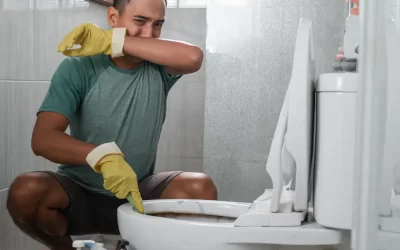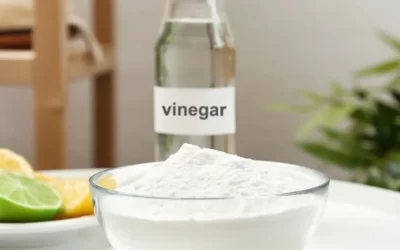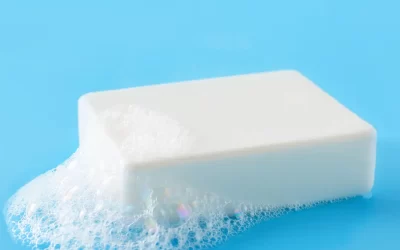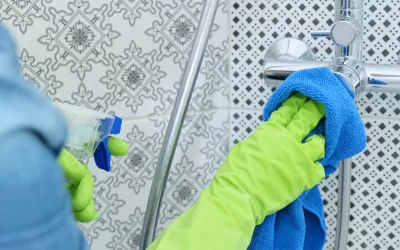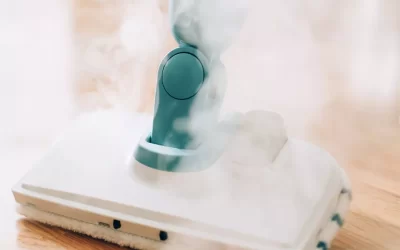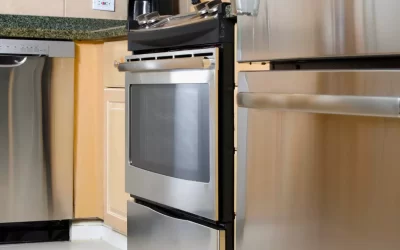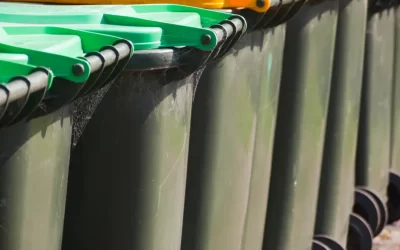How to Get Your Bond Back in NSW
How to Get Your Bond Back in NSW
So you’re moving out and want to know how to get your bond back.
Moving house can be stressful at the best of times. The last thing you want to worry about is getting your bond back. According to Domain.com.au, half of the tenants in NSW don’t get their full bond back when they move out.
Half!
That’s a huge blow to your bank account. Especially considering that your bond may range from anywhere between $1,200 to $10,000 depending on the size of the property you’re renting.
This post will explain the top 5 reasons that people don’t get their bonds back. Then we’ll show you 10 things you can do to ensure you get your full bond back.

5 main reasons that people don’t get their full bond back
When your move out of your rental property, your agent will conduct an inspection to make sure everything is in order. These inspections are very rigorous and you can be certain that your agent will go through the property with a fine tooth comb. Over the years we’ve found that there are 5 main reasons people don’t get their full bond back.
1. Not carrying out a thorough inspection before you move in
Firstly, it’s not just about knowing how to get your bond back. You should also know how to prevent issues that may cause agents to keep some of your bond.
Before you move into a property, you can expect it to be spotless. However, before you move in, you should perform an inspection and make note of any issues.
If the property isn’t spotless or has any damage then you should file a report before you move in. It’s best to take photos so that you have evidence to support the claims in your report.
NOTE: Most agencies will expect you to report any issues within 7 days.
If you don’t conduct an initial inspection and file a report then any damages present when you move in will become your responsibility to fix when you move out. So be thorough!

2. Accepting the agent’s condition report without inspecting the property
Agents will perform an inspection before you move in but will normally provide very vague information about the condition of the property and any damages that are present.
As mentioned previously, if you accept their condition report on face value and don’t file a report then all existing problems become your problems once you move in. If you want to get your bond back, it will be easier if you’re not dealing with problems caused by someone else.

3. Not taking time-stamped photos and having things in writing
By the time you move out, the agent you dealt with may have moved on or may have forgotten what the property was like when you moved in. For that reason, you should always try to keep everything in writing just in case something goes wrong. Similarly, you should ensure that you take photos before you move in so you can use these as evidence to support your claims.
Keep a copy of your communications with the agent, as well as copies of photos that show the existing condition and damages. We recommend that you keep everything in a folder on your computer and make sure it’s backed up. That way, you’ll be well equipped if agents try to make you pay to have things fixed when you move out.
NOTE: Make sure your photos are time stamped to prove that they were taken before you moved in!
You can download an app that takes photos with a timestamp. One we’ve found called Timestamp Camera is available for download on Google Play and iTunes.
4. Not cleaning the property thoroughly after you move out
One of the main reasons agents refuse to return a tenant’s full bond is because the property was not thoroughly cleaned in preparation for a new tenant.
All property managers and real estate agencies have a checklist that they use when inspecting a property. It is a good idea to ask the agent to send you their checklist as soon as you know you will be moving out. You can see our checklist here.
Most agencies will expect the following as a minimum:
- Thorough clean of all rooms (bedrooms, bathrooms, kitchen, laundry, living and dining areas)
- Oven cleaning (full clean of the oven interior including the trays)
- Window cleaning (interiors of all windows, window tracks, and window sills, plus interior and exterior of glass doors)
- Cleaning inside of all cabinets/wardrobes and drawers in all rooms (kitchen, bathrooms, bedrooms, etc.)
- Cleaning of skirting boards and cornices
- Wall cleaning (spot clean all marks off the walls)
- Extra things like the range-hood, extractor fans, light fittings and so on.
Depending on the property you’re renting, the state of your property when you leave, and the agents who manage it, you may also need the following:
- Carpet steam cleaning (generally only needed when carpets are stained or if your agent insists)
- Blind and curtain cleaning (blinds can be cleaned by hand but curtains may need dry cleaning)
- Exterior cleaning (e.g. balcony, deck, patio, courtyard etc.)
To save yourself the hassle and increase the chances of getting your full bond back, it’s best to let professionals take care of it.
Book an end of lease cleaning service online instantly.

5. Missing the final inspection or not leaving enough time to fix issues
One of the main reasons people don’t get their full bonds back is not fixing problems before new tenants move in. That’s why it’s important that you know how to get your bond back. If you don’t know what you need to do, then you might overlook the things that agents consider to be a problem. In addition, if you leave everything to the last minute, then you might not have enough time to fix things after the agents have conducted their final inspection.
Try to be at the final inspection in person so you have a clear understanding of any issues the agent may notice. Then you’ll have the opportunity to stick up for yourself if anything they notice was previously mentioned in your initial inspection report.
Secondly, make sure you are organised and that you have 2 weeks to fix any issues that arise. This will ensure that you can contact cleaners or tradespeople to deal with anything you may have forgotten or that were overlooked.
10 tips that explain how to get your bond back
Now that you know the 5 main reasons people don’t get their bonds back, how to get your bond back should be fairly obvious. Let’s summarise the things you need to do and give you a few more tips.
1. Perform an intial inspection and file a report
Save yourself the hassle of paying for other peoples’ mistakes. The first step in knowing how to get your bond back is to file a detailed report and keep time-stamped photo evidence.
2. Check the initial inspection report when you start planning to move out
Refer back to the inspection report and inspect the property again. Find any new damage and arrange to get it fixed before you move. If you don’t, the cost of fixing things will be deducted from your bond. Keep in mind, the agents may not care about finding a good deal so you may end up paying a premium.
3. Understand your obligations as a tenant
Make sure you provide agents with a notice that you intend to vacate. In addition, make sure the property is in the same condition it was in when you moved in. Lastly, ensure that all bills (e.g. water) have been paid. For more information about your rights and obligation as a tenant have a look at this page on the Fair Trading website.
NOTE: Once paid, close any accounts associated with the property.
4. Get professionals involved
If you need to get something fixed before you move out, you might consider doing it yourself to save money. However, if it’s not done properly, you may not have time to fix it again and the cost will be deducted from your bond.
5. Clean the property to the expected standard
Ask your agents for their inspection checklist so you can ensure the property is cleaned in line with their expectations. Consider hiring professional cleaners who know how to get your bond back.
Book an end of lease cleaning service online instantly.

6. Don’t be late when you vacate
This one’s simple and it rhymes – move out on time to avoid a fine.
7. Return everything on time
Make sure you hand back everything that you got when you moved in, like keys and garage remotes. If you’ve lost a key, be upfront with the agent and you may get away with it. At worst, you’ll need to replace it.
8. Attend the final inspection in person
If you’re there in person, you can use your charm to your advantage. Plus you can get a clear understanding of any issues that may be present so you know what needs to be done.
9. Speak directly with your property manager
Speaking directly with the property manager can reduce miscommunication and speed things up. Did I mention you can use your charm to your advantage?
10. Understand how bond refunds are processed
To get your bond back, you’ll need to fill out the “Claim for Refund of Bond Money” form on the Service NSW Website. The amount you claim needs to be discussed and agreed upon with your agent. Charm their socks off!
Bonus Tip: Dealing with disputes
If you’re one of the unlucky ones with a difficult agent or landlord, then you may have to dispute the amount of your bond that is being returned. Ideally, you and your agent/landlord should discuss the problems privately and resolve them in person. However, when no solution is achieved via private conversation, you can submit a claim for your bond using the link above in tip 10. The landlord or agent will have 14 days to dispute it and write to the NSW Civil and Administrative Tribunal (NCAT). Then it will be up to the tribune to decide how the bond will be paid.
If you can prove the condition of the property is reasonably similar to the condition when you moved in, then you have a very high chance of winning the tribunal. You can find more information above resolving a dispute through NCAT by clicking the link.
Book an end of lease cleaning service online instantly!

Check Out Our Other Posts
Removing Odours From Your Bathroom
Removing odours from your bathroom isn’t a difficult task with the right methods and tools. Successfully removing odours from your bathroom can be achieved with a few household supplies. Let’s dive in.
Cleaning with Bicarb and Vinegar
Did you know that combining bicarb and vinegar creates a powerful cleaning solution capable of tackling many household cleaning tasks? Safe for your family, pets, and the environment, cleaning with bicarb and vinegar is an easy way to eliminate harmful chemicals from your cleaning regimen.
How to Remove Soap Scum
This post outlines different ways to remove soap scum from areas of your bathroom, like the bathtub, shower screen, and faucets or fixtures.
Home Cleaning Schedule
How often you clean your home depends on various factors such as household size, lifestyle, and personal preferences. However, when establishing a comprehensive home cleaning schedule, it’s essential to consider specific guidelines for maintaining different areas of your home:
How to Remove Dog Smell
Understanding how to remove dog smell is essential for maintaining a fresh and inviting living space. Fortunately, there are several simple steps you can take to combat and eliminate dog smells in your home for good.
Cleaning a Spa
Cleaning a spa bath is crucial. Without regular maintenance, your spa bath could be harbouring unseen threats beneath its soothing jets. Learn how to clean a spa bathtub here.
How to Use a Steam Mop
If you’ve ever wondered how to use a steam mop efficiently then you’ve come to the right place. In this guide, we’ll not only answer that question but also provide you with step-by-step instructions and valuable tips.
Cleaning Stainless Steel
Cleaning stainless steel isn’t just about aesthetics; it’s about maintaining the integrity of these sleek surfaces. Without proper care, stainless steel can lose its luster, making it look dull and dingy.
Learn How to Clean Your Coffee Machine for the Best-Tasting Brew
We’ll guide you through the step-by-step process to clean a coffee machine to ensure that every cup of coffee you brew is as delicious as it should be.
How to Clean a Wheelie Bin
Cleaning a wheelie bin may not be the most thrilling task, but the payoff is definitely worth it. Plus, the more frequently you clean a wheelie bin, the less you’ll have to endure those unpleasant odours.

